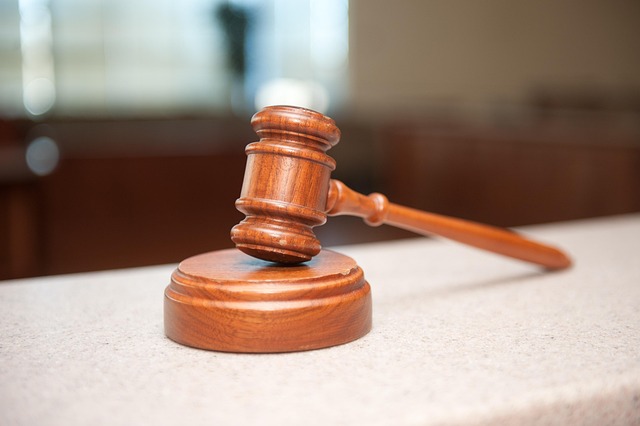The burden of proof is a critical factor in securities scam cases, influencing verdicts and protecting investors. Understanding fraud tactics enables early recognition, averting potential losses. Effective criminal defenses and robust evidence are key to favorable outcomes, with real-world examples highlighting the impact of quality proof on legal decisions. How Burden of Proof Affects Verdicts underscores the importance of meticulous investigations and specialized legal counsel in securing justice.
In the complex world of securities, understanding common scams is crucial for investors. This article delves into the intricate landscape, exposing popular schemes that prey on unsuspecting individuals. We explore the significance of the burden of proof in legal battles, where the power to uncover truth can sway scam verdicts. By examining regulatory measures and real-world examples, we highlight how evidence influences outcomes, empowering investors with knowledge to protect their interests. Uncover the secrets behind securities scams and their impact on legal decisions, especially regarding the role of burden of proof in shaping outcomes.
- Understanding the Securities Landscape: Common Scams Unveiled
- Burden of Proof: Who Holds the Power in Legal Battles?
- Navigating Regulatory Measures: Protecting Investors from Deceptive Practices
- Real-World Examples: How Proof Shapes Scam Verdicts
Understanding the Securities Landscape: Common Scams Unveiled

Navigating the securities landscape can be a complex task, as investors are often targeted by cunning scams that promise substantial returns with minimal risks. Understanding common schemes is essential for astute investors to protect themselves and their hard-earned money. One key aspect in these cases is the burden of proof—the responsibility to present compelling evidence—which significantly influences the outcome of both civil and criminal proceedings, including jury trials.
Exposing these scams requires a deep dive into the tactics employed by fraudsters. For his clients involved in high-stakes cases, presenting concrete evidence can be challenging but crucial. By recognizing typical ploys like Ponzi schemes, pump-and-dump tactics, and fake investment opportunities, investors can steer clear of potential pitfalls. The burden of proof ensures that only well-substantiated claims reach the jury, ultimately shaping verdicts in favor of victims and deterring future fraudulent activities.
Burden of Proof: Who Holds the Power in Legal Battles?

In legal battles, the burden of proof is a crucial aspect that significantly influences the outcome of securities fraud cases. It refers to the responsibility of presenting compelling evidence to support a claim or defense. In the context of securities scams, the plaintiff or the regulatory authority must prove beyond a reasonable doubt that a defendant engaged in fraudulent activities. This standard is inherently challenging in financial crimes, as evidence can be complex and often involves intricate analysis of documents and market trends.
Understanding who bears this burden is essential for achieving extraordinary results in general criminal defense strategies. When the prosecution successfully meets its burden of proof, it increases the likelihood of a guilty verdict. Conversely, if the defendant’s legal team can raise reasonable doubts, they may secure a complete dismissal of all charges, highlighting the profound impact of this principle on the entire legal process.
Navigating Regulatory Measures: Protecting Investors from Deceptive Practices

Navigating Regulatory Measures plays a pivotal role in safeguarding investors from deceptive practices prevalent in the securities market. Regulatory bodies across the globe have implemented stringent rules and guidelines to ensure transparency, fairness, and protection for all stakeholders involved. One of the key mechanisms is the Burden of Proof, which significantly influences the outcome of cases involving securities scams. This legal principle dictates that the onus of presenting compelling evidence lies with the accuser or plaintiff, ensuring that allegations are substantiated before any accusations can be leveled.
Effective enforcement of these regulatory measures requires robust oversight and a deep understanding of complex financial instruments. For his clients, navigating this landscape can be challenging but is crucial in securing winning challenging defense verdicts. By employing seasoned legal professionals with expertise in securities law, investors can better protect their interests, ensuring that any potential scammer faces the consequences of his or her deceptive practices.
Real-World Examples: How Proof Shapes Scam Verdicts

In the world of securities scams, the burden of proof plays a pivotal role in shaping the outcomes of legal proceedings. Real-world examples illustrate that the quality and quantity of evidence presented can significantly impact scam verdicts. For instance, in high-stakes cases involving corporate malfeasance, detailed financial records, expert testimonies, and forensic analyses act as powerful tools to expose fraudulent activities. These pieces of evidence are crucial throughout all stages of the investigative and enforcement process, ensuring that justice is served for both corporate and individual clients.
When it comes to deciding guilt or innocence, judges and juries rely on solid proof. In many cases, the burden of providing this evidence falls on the plaintiff or prosecuting entity. Weak or circumstantial evidence may lead to acquittals, while robust, concrete proof can result in severe penalties for perpetrators. This dynamic underscores the importance of meticulous investigation, as the veracity of accusations directly correlates with the strength of the proof presented in court.
Understanding securities scams and their impact on investors is a crucial step in protecting oneself. By navigating the legal landscape, understanding regulatory measures, and considering real-world examples, individuals can better equip themselves against deceptive practices. The burden of proof plays a significant role in shaping scam verdicts, emphasizing the importance of thorough investigation and evidence. Stay informed, be vigilant, and always seek professional advice to avoid falling victim to these insidious schemes.






